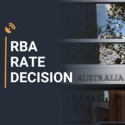Lack of Greek progress not yet a concern to investors;
PBOC loosens mortgage policy and opens the door to more stimulus;
US income, spending and inflation data more important than Friday’s jobs report.
Another big week for the markets gets underway today with the Bureau of Economic Analysis releasing the latest inflation, income and spending figures for the US.
Already this morning we’ve had some encouraging figures from the eurozone, where sentiment readings for March showed widespread improvements, including upward revisions to some of February’s numbers. The latest economic sentiment indicator saw one of the biggest improvements, rising from 102.3 to 103.9 in a sign that the eurozone is benefiting from ECBs QE program and resulting euro weakness.
The euro and European stocks were given an initial boost from the release, which showed confidence improving among consumers, businesses, industrials and the services sector. While much of this has since been pared, there has been a notable change in attitude towards the eurozone since the start of the year. Even increasing Greek risk is being brushed off just as more of an inconvenience than an actual concern. This could all change if things take a significant turn for the worse but I just don’t think people are buying into the “Grexit” any more. A deal is always done and it would be truly bizarre if the same didn’t happen this time around.
Greece is merely a distraction in the more important and long overdue recovery story. Some people may have opposed QE but it’s hard to argue that it hasn’t had a positive effect. The eurozone has been stagnant at best for years and it now appears that the ECB has finally done what is required in the absence of any kind of fiscal assistance. Of course it’s still early and we’ve seen improvements in confidence before that has quickly been undone but something about this feels different. We may not see dramatic improvements but I do feel like the darkest period is behind us.
Dovish comments from Fed Chair Janet Yellen on Friday and PBOC Governor Zhou Xiaochuan overnight are also offering a lot of support to the markets today. Yellen once again stressed the need for a slow implementation of rate hikes while Zhou opened the door to further monetary loosening as deflation risks grow. The PBOC this morning announced a slight loosening on mortgage policy in an effort to support the ailing housing market, lowering the down payment on second mortgages from 60% to 40%. I’m not convinced that this will be enough to tempt property speculators into such a tough market but it may just slow the decline that has been a real drag on the economy.
While many are looking ahead to the US jobs report on Friday, I think the inflation, income and spending figures are arguably more important. We’ve seen a significant improvement in the labour market over the last year, unemployment is at 5.5% - which the Fed deems to be full employment – and job creation remains strong. If this was all the Fed was focused on, the first rate hike would have happened already.
Wage growth, spending and inflation are the bigger concern of the Fed right now and the core personal consumption expenditure price index is the Fed’s preferred inflation measure. Coming a week after the CPI release, it may be viewed as a lagging indicator but that should not matter. This is what the Fed uses and it should therefore be respected. All you have to do is look at Friday’s comments from Yellen to see that wage growth and inflation are a big concern. The reference to secular stagnation shows that the Fed, despite seeing it as an unlikely scenario, is worried by the lack of wage growth and slow economic growth and is fearing a period of secular stagnation as was seen in Japan over the last 20 years.
The S&P is expected to open 13 points higher, the Dow 110 points higher and the Nasdaq 36 points higher.
This article is for general information purposes only. It is not investment advice or a solution to buy or sell securities.
Opinions are the authors — not necessarily OANDA’s, its officers or directors. OANDA’s Terms of Use and Privacy Policy apply. Leveraged trading is high risk and not suitable for all. You could lose all of your deposited funds.
Recommended Content
Editors’ Picks
AUD/USD remains firm above 0.6600 ahead of RBA

AUD/USD maintains its bullish bias well and sound on Monday, extending the multi-session recovery past the 0.6600 barrier ahead of the key interest rate decision by the RBA.
EUR/USD propped up near 1.0750 ahead of European Retail Sales

EUR/USD churned around 1.0770 to kick off the new trading week, with the pair rising after better-than-expected Purchasing Managers Index figures early Monday before settling into familiar chart territory above 1.0750 ahead of Tuesday’s pan-European Retail Sales figures.
Gold holds on to modest gains around $2,320

Gold trades decisively higher on the day above $2,320 in the American session. Retreating US Treasury bond yields after weaker-than-expected US employment data and escalating geopolitical tensions help XAU/USD stretch higher.
Bitcoin price holds above $63K as MicroStrategy tops BTC ownership list

Bitcoin (BTC) price recorded a rather bold two days this past weekend in a surge that saw millions in positions liquidated. However, the week is off to a calm start with altcoins sucking liquidity from the BTC market.
RBA expected to leave key interest rate on hold as inflation lingers

Interest rate in Australia will likely stay unchanged at 4.35%. Reserve Bank of Australia Governor Michele Bullock to keep her options open. Australian Dollar bullish case to be supported by a hawkish RBA.